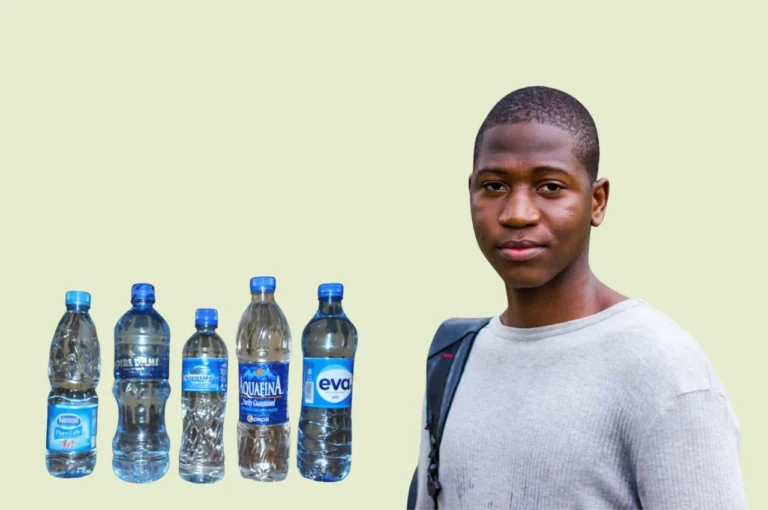SIWES Placement: How to Apply for Industrial Training in Nigeria

As a student, getting a SIWES placement in Nigeria can be challenging, especially in competitive fields like engineering, IT, and medical sciences.
Since the program is mandatory for many students across different universities and polytechnics in Nigeria, the demand for placements is high, increasing competition.
Most students apply to well-known companies, but these firms have limited spaces for interns, making it tough to secure a spot.
Some organizations prioritize candidates with referrals making it harder for students without connections to secure placement.
Also, some do not take students due to lack of resources, supervision capacity, or company policies.
Your industrial training can be carried out either in government organizations or in private establishments in Nigeria.
The training program provides opportunities for exposure to the working world, which will make you more aware of the hopes and expectations that the industry has of you.
The program will also equip you with actual work experience.
Placing students in industries increases their chances of employment after graduation, as there is a strong possibility that you will be offered a job in the same company you trained in.
As the period for your training draws nearer, ensure to make adequate plans and preparations.
Once the time for payment reaches, you will either be notified by your school of the exact venue or office for the registration, stamping, signing, and collection of your receipts, forms, and logbook.
Pay early and collect your receipts, forms, and logbook.
Once you collect your logbook, it usually comes with SCAF and ITF Form 8.
Ensure to keep your materials in a neat and safe place.
If they should get lost, stolen or damaged, it might be hard for you to get new ones.
After the payments and collection of your materials, it is now time for you to write and forward your application letters.
Your formal application letter should be written and sent to your desired course-related firms, stating your aim to undergo your industrial training for a stipulated period in the company.
You might be given a sample or template by your school.
So, all you have to do is to make photocopies and enter your name, department, matriculation/registration number in the letter sample and forward to your desired course-related firms for training.
How to Apply for SIWES and Secure Industrial Training Placement in Nigeria
Consider these factors before sending your application letters:
1. Course Relevance
When applying for training in Nigeria, most students apply in organizations that are not related to their course of study in school.
Let me give you an example.
As a Biochemistry graduate of IMSU, I applied and did my industrial training in a private hospital in Owerri.
I learnt and conducted various medical laboratory tests such as PCV, glucose test, blood grouping on patients.
These daily activities are related to my course of study.
It would have been very wrong for me to had applied for my training in a construction company, financial institutions, media house like NTA, (N.T.A), computer training centers, mechanic workshops, because they were not related to my course of study in school (Biochemistry).
Because you know or have someone working in a particular company, does not mean you should apply for your training there.
If you must apply – ensure it is actually related to your course of study in school.
If you should undergo your training in an organization that is not related to your of study in school, you will be awarded a poor grade, because there is a mark awarded for course relevance.
Before applying for training in any organization, ask yourself these questions:
- Can I work here in the future with my degree/certificate?
- The activities, jobs, projects carried out and products produced by the company, are they in any way related to the courses, topics I am being taught in school?
If, after asking yourself these important questions and you are still confused, approach your departmental lecturers and senior colleagues for advice and recommendations.
2. Allowance
Not all companies pay their interns.
There is usually no payment for some students.
I was not being paid during my training.
Have this in mind when securing placement, so as not to later get disappointed if you are not being paid.
Ask if you will be paid before accepting to work in the company.
3. Location
The location of the organizations you are applying for your industrial training matters a lot.
Let us say you are an IMSU student wanting to undergo your training in Lagos.
Note down these things:
- Can I cater for my transportation, needs, and wants?
- Do I have enough money to rent a place after my arrival that would probably be closer to my workplace?
- Do I have or know friends and relatives in Lagos that I will stay with? Perhaps my application becomes successful?
- Where are the companies located in Lagos? Is it at Ikeja, Surulere, Ikorodu, or Victoria Island?
4. Stability
Consider the economic, social, weather condition of the state or place you are applying for your training in Nigeria.
No student would prefer to do his/her training in a state where they are crises such as armed robbery, road accidents, kidnapping, and flooding.
Because I am going for industrial training does not mean that I should come and go and kill myself!
Your life is very important.
5. Company’s Reputation
Reputation simply means that the organizations you are applying for your training should at least be recognized and possibly registered by the Corporate Affairs Commission (CAC) in Nigeria.
During my industrial training days, a female course mate of mine was actually defrauded by a fake and non-existent pharmaceutical company (individuals), who claimed to be accepting students for training provided they pay a certain amount of money.
Unfortunately, they weren’t caught.
Her hard-earned money went just like that.
This incident affected her grade and performance, as she started her training late.
Had she known!
Please, learn from her mistake.
6. Policies
Some companies work on Saturdays and Sundays.
“Are you ready and prepared?” Note this.
Also, some private companies work on public holidays.
If there is a strike in the country, it may affect students.
For example, if public health workers at Federal Medical Center (FMC) go on a nationwide strike for months, students who applied or are already doing their training there may be affected.
Also, if universities and polytechnics in Nigeria go on strike, students doing their training in those institutions may face delays.
By the time the strike is called off, your course mates doing their training in private companies might have already made good progress.
7. Oral Interview/Written Test
Some companies in Nigeria organize interviews and tests for students applying for training in order to access and determine their abilities and capabilities before acceptance.
When applying for your training in Nigeria, get the correct email addresses of the companies you wish to undergo your training and send your letter(s) online.
Also, visit the locations of the companies and submit your application letters to either the secretary, HR, or the employer/CEO in charge.
Sending your letters online through email has a major disadvantage, which is your letters might not get read or replied by the companies.
Instead, it is advisable for you to visit the location of your desired firms and submit your letter and then wait for a reply.
After the submission of your application letter and/or C.V, and successful interview or test, you may be told to start work immediately, the next day or week.
You may not even get a reply or positive feedback from the company at all. It depends!
That is why it is always good to apply in over one company to avoid stories that touch.
This is important advice for future participants.
In April 2018, I applied for my industrial training in a private hospital in Owerri on a Friday.
The Chief Medical Director interviewed me (asked a few intelligent questions which I answered correctly).
I was finally told to begin my training on Monday, the next week.
Some firms accept only one student.
I was the only internship student at my workplace.
It usually depends on the company’s size, number of operations, and labour needed.
Some companies also accept up to 50 students per session, just like a pharmaceutical company I know in Lagos, where there is a division of labour.
In the pharmaceutical company, there are sections for students of microbiology, biochemistry, chemistry, botany, nutrition and dietetics, food science and technology, animal and environmental biology, mass communication, and engineering to work in.
To improve your chances of getting a SIWES placement, start searching for placements at least 3–6 months before your training period begins.
Send applications to different organizations related to your course of study in school.
Talk to your lecturers, family, and friends for referrals or recommendations.
Some organizations advertise internship opportunities online, so check company websites and social media.
A well-written CV increases your chances of being selected.
So, prepare a strong CV and application letter.
We hope you find this post useful.
Good luck!







Good afternoon
please I need siwes placement for 3months experience am an accounting student
Good morning
I need siwes placement for 3 months.i am a business education students
Good evening
I need siwes placement for 3 months.i am an industrial chemistry student
Reply
good morning
I need IT placement for 3 months. I’m a mass communication student
good afternoon
I need siwes placement for 3 months. I am an chemical engineering student
an chemical my brother
Good evening,
please I need a siwe placement for 4 month. As science laboratory technology (SLT) student
good evening,
please i need siwes placement for 4month.as a pharmaceutical technology student.
Good morning,
Please I need siwes placements for 3months as a chemistry student
Good afternoon. Pls I need SIWES placement at Sango Otta, Ogun State as a Mechanical Engineering
Good afternoon sir/ma
I am a student of Kwara state university
I need a SIWES placement of 6 months as a computer science student in Lagos island
Good morning Sir/ma
I am a student of Kenule Beeson Saro-Wiwa Polytechnic bori.
l need SIWES placement for 4months as a chemical engineering student in port Harcourt
I am student of petroleum training institute (PTI)
please I’m need SIWES placement for four months as a petroleum engineer
Good morning
please I need a SIWES for one year
I’m a science laboratory technology student
good day everyone pls I need SIWES IT placement for 1 year, I’m an Electrical Electronics Engineering student.
Good morning
I am an industrial chemistry student please I need a siwes placement for me. Thanks
Good Morning
I am an Accounting Student, please I need a SIWES placement that has accomodations in Ibadan or anywhere in Oyo State. Thanks
Good morning
I am a Statistics student, please I need a siwes placement in Lagos. Thanks
Good day, pls I need SIWES IT placement for 6 months, I’m a Software Engineering student.
Good evening sir, please I need siwes placement for 6 months as a microbiology student.